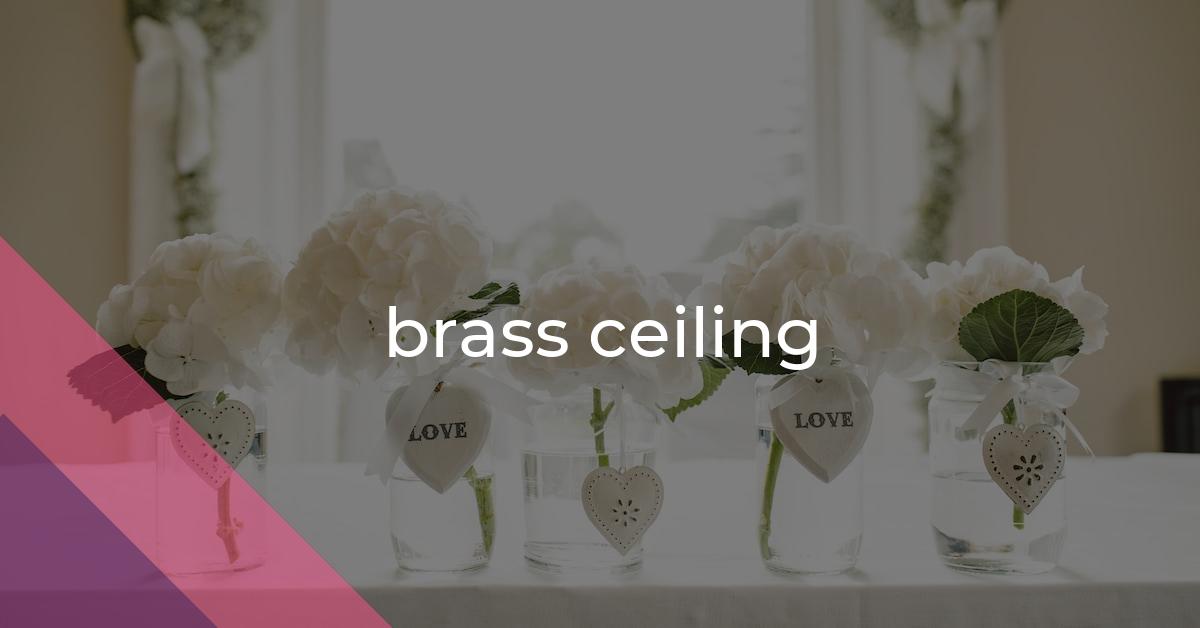brass ceiling: Idiom Meaning and Origin
What does ‘brass ceiling’ mean?
The idiom "brass ceiling" refers to an invisible barrier that prevents women from advancing to high-level positions or leadership roles, similar to the glass ceiling metaphor. It highlights the persistence of gender inequality and limited opportunities for women in certain professions or industries.

Idiom Explorer
The idiom "social ladder" refers to the hierarchical ranking of individuals based on their social status. It implies the idea of climbing up the ladder to gain higher social standing or prestige within a society.
The idiom *glass ceiling* refers to an invisible barrier that limits the advancement of individuals, especially in the workplace, based on factors like gender or race.
The idiom "everlasting staircase" refers to a situation or task that seems to have no end or solution, leading to a feeling of endlessness or futility.
The idiom "elephant in the room" refers to a problem or issue that everyone is aware of, but no one wants to discuss or acknowledge openly.
The idiom "corporate ladder" refers to the hierarchical structure within a company, where employees aim to climb up to higher positions of power and authority. It symbolizes the pursuit of success and advancement through career progression.
An idiom meaning a man in a situation of power or control in a predominantly female environment, often causing disruption or imbalance.
The idiom "Chinese Wall" refers to a figurative barrier between different departments or divisions within an organization to prevent the sharing of information. It is designed to maintain confidentiality and avoid conflicts of interest between different areas of the business.
The idiom "business girl" refers to a young woman who is ambitious and career-oriented, particularly in the business world.
The idiom "brass-necked" refers to someone who is shameless, audacious, or impudent. It implies a person who displays a lack of respect or humility, often in a bold or arrogant manner.
Beyond Glass
The phrase "brass ceiling" is a relatively new idiom that combines the concepts of the "glass ceiling" and "brass tacks." It represents the barriers faced by women in reaching high-level positions in law enforcement and the military. The glass ceiling, a well-known term, refers to invisible barriers that prevent women from advancing in the workplace. On the other hand, the brass ceiling specifically narrows its focus to the challenges faced by women in these two fields.
Believed to have originated in the late 20th century, the exact origin of the phrase "brass ceiling" remains unknown. It gained popularity in the context of discussions around gender inequality and the obstacles faced by women in male-dominated professions. The term "brass" in this idiom likely alludes to the brass insignia worn by high-ranking military officers and the brass buttons commonly found on law enforcement uniforms.
The brass ceiling can be seen as an extension of the glass ceiling concept, emphasizing the difficulties faced by women in law enforcement and the military. This idiom implies that despite advancements in gender equality, women still encounter significant barriers in reaching top leadership positions in these fields.
The brass ceiling reflects deeply ingrained gender biases and stereotypes that persist within various institutions. Women working in law enforcement and the military often encounter overt or covert discrimination, limited advancement opportunities, and a hostile work environment. The idiom captures the frustration and unfairness experienced by qualified women who possess the potential to rise higher, but are held back due to systemic barriers.
Efforts to address the brass ceiling have been made by numerous organizations and advocacy groups. Initiatives such as gender equality policies, diversity training, and mentorship programs aim to break down barriers and promote equal opportunities for women in law enforcement and the military. However, progress in this area remains slow, and the brass ceiling continues to impede the advancement of women in these professions.
It is important to acknowledge that the challenges faced by women in law enforcement and the military are not limited to gender. Intersectionality recognizes that individuals belonging to multiple marginalized groups, such as women of color or LGBTQ+ individuals, may face overlapping forms of discrimination in these fields. Consequently, the brass ceiling symbolizes a broader struggle for equality and inclusivity.
The idiom "brass ceiling" encapsulates the specific obstacles encountered by women in law enforcement and the military. It sheds light on the gender biases and barriers that hinder their progress towards reaching top leadership positions. While efforts have been made to address this issue, progress remains slow. Dismantling the brass ceiling is crucial for achieving true gender equality and inclusivity in these professions.
Example usage
Example 1: The senior management positions in the company are mostly held by men, indicating the existence of a brass ceiling preventing women from advancing in their careers.
Example 2: Despite her exceptional qualifications and experience, the woman faced the brass ceiling when she was passed over for a promotion in favor of a less qualified male colleague.
Example 3: Many women struggle to break through the brass ceiling in traditionally male-dominated fields such as engineering and finance.
More "Obstacles" idioms



